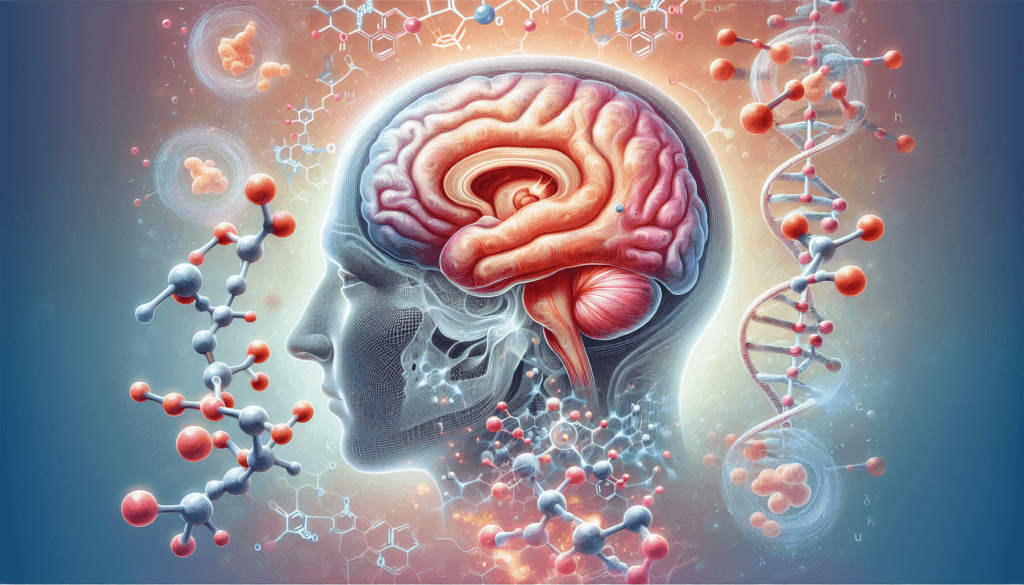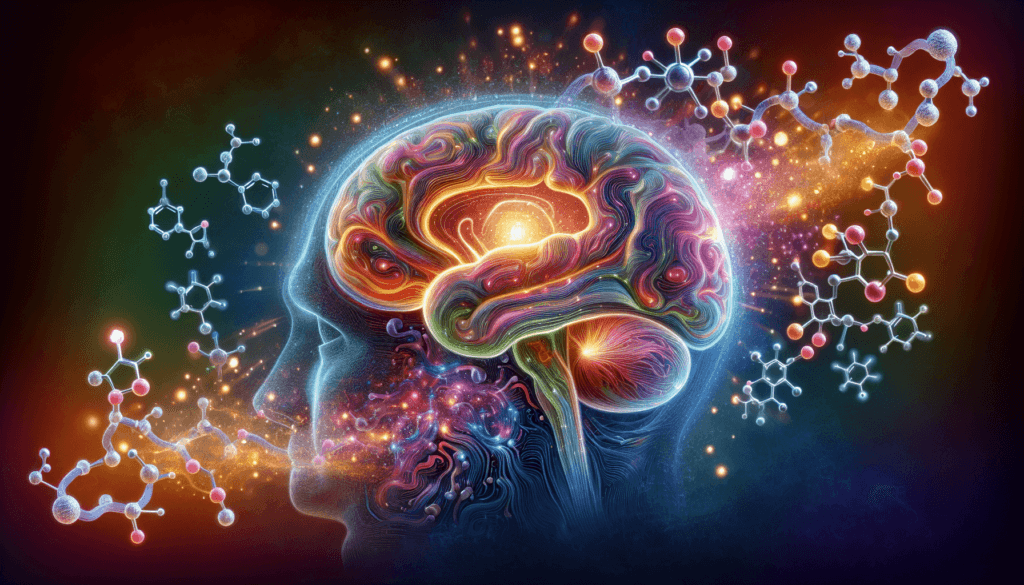Have you ever taken a moment to consider the profound complexity of your own biology? The human body is a marvel of intricate systems working harmoniously to maintain equilibrium and enable life as we know it. At the heart of this extraordinary machine lies a network of chemical messengers known as hormones. More specifically, we’re talking about the fascinating world of human releasing hormones, a crucial component of your endocrine system.
Let’s journey into the depths of these tiny, yet infinitely significant substances and uncover their essential roles, distinguishing characteristics, and unparalleled importance in our daily lives.
Understanding Hormones and Their Role
To appreciate the magic of releasing hormones, you first need a solid grasp of what hormones, in general, are. These chemical messengers are the substance of life—circulating through your bloodstream, regulating physiological activities, and influencing nearly every aspect of your existence, from growth and metabolism to mood and stress response.
Hormones are secreted by glands in the endocrine system and impact target organs and tissues, ensuring the body operates smoothly. Among the plethora of hormones, there’s a special category called releasing hormones, which orchestrate a myriad of vital processes by stimulating the release or inhibition of other hormones.
The Endocrine System: Conductor of Life’s Symphony
Table of Contents
Think of your endocrine system as a maestro conducting an orchestra, with each hormone playing a unique instrument. This complex system comprises glands such as the pituitary, thyroid, adrenal, and pancreas, each contributing to the production and release of hormones. Releasing hormones act as descriptors in this symphony, cueing specific glands to either start or stop playing, thus maintaining a delicate balance known as homeostasis.
Delving into Releasing Hormones
Releasing hormones may not be the stars of the show, but they ensure things run smoothly behind the scenes. Primarily produced in the hypothalamus—a small but incredibly influential region of your brain—these hormones are the gatekeepers to hormonal balance. Let’s explore each of the significant releasing hormones and their influence on your body:
1. Thyrotropin-Releasing Hormone (TRH)
Thyrotropin-Releasing Hormone is a key player in controlling the production of thyroid-stimulating hormone (TSH) and, subsequently, the activities of the thyroid gland. By stimulating TSH, TRH helps regulate your metabolism, heart rate, and even provides you with energy.
Importance and Benefits:
- Metabolic Regulation: Ensures your energy levels are balanced and metabolic process remains efficient.
- Heart Health: Influences heart rate and strength of heart contractions.
- Mood Stabilization: Indirectly affects mood and cognitive function by regulating metabolic processes.
2. Corticotropin-Releasing Hormone (CRH)
Corticotropin-Releasing Hormone triggers the release of adrenocorticotropic hormone (ACTH) from the pituitary gland. ACTH then stimulates the adrenal glands to produce cortisol, the famous stress hormone.
Importance and Benefits:
- Stress Response: Prepares your body to respond to stress by altering your immune response and glucose metabolism.
- Immune System Modulation: Can inhibit functions of some immune system components to reduce inflammatory response.
- Metabolic Effects: Increases available energy through the stimulation of fats and carbohydrates.
3. Gonadotropin-Releasing Hormone (GnRH)
This potent hormone is crucial for the reproductive system. Gonadotropin-Releasing Hormone stimulates the release of luteinizing hormone (LH) and follicle-stimulating hormone (FSH), both of which are essential in regulating the gonads—testes in men and ovaries in women.
Importance and Benefits:
- Reproductive Health: Essential for ovulation and sperm production, directly influencing fertility.
- Sexual Development: Important during puberty for the development of secondary sexual characteristics.
- Menstrual and Sperm Production: Regulates menstrual cycles in females and stimulates sperm production in males.
4. Growth Hormone-Releasing Hormone (GHRH)
Growth Hormone-Releasing Hormone is paramount for stimulating the secretion of growth hormone (GH) from the pituitary gland. Growth hormone has a profound impact on growth and development, significantly influencing physical stature and cellular regeneration.
Importance and Benefits:
- Growth and Development: Encourages longitudinal bone growth during childhood and adolescence.
- Tissue Repair and Muscle Growth: Facilitates the repair of tissues and growth of muscle mass.
- Metabolism of Fat and Sugar: Aids in the regulation of body composition by promoting the utilization of fat and carbohydrate reserves.
5. Prolactin-Releasing Hormone (PRH)
Although prolactin is associated predominantly with lactation, Prolactin-Releasing Hormone plays broader roles. PRH stimulates the release of prolactin, vital for breast milk production post-childbirth.
Importance and Benefits:
- Lactation: Initiates and sustains milk production in new mothers.
- Reproductive System and Immunity: Has roles in reproductive health and immune system support.
- Emotional Benefits: Associated with bonding and nurturing behaviors, enhancing emotional well-being.
6. Melanocyte-Stimulating Hormone-Releasing Hormone (MSH-Releasing Hormone)
Melanocyte-Stimulating Hormone-Releasing Hormone helps control the production of melanin, the pigment that determines skin and hair color. It’s also involved in appetite and sexual arousal.
Importance and Benefits:
- Pigmentation: Affects skin and hair color by stimulating melanin production.
- Appetite Control and Sexual Arousal: Involved in regulating hunger and libido.
7. Somatostatin
Unlike its counterparts, somatostatin inhibits the release of several other hormones such as GH, thyroid-stimulating hormone, and insulin. It’s a critical check-and-balance in your system.
Importance and Benefits:
- Inhibition of Excessive Hormone Secretion: Prevents overstimulation by other hormones.
- Digestive Process: Regulates digestive function and absorption rates in the intestines.
- Blood Sugar Management: Plays a part in controlling glucose metabolism through insulin modulation.

The Significance of Balanced Hormone Levels
The release of hormones is a tightly regulated process. Anything that disrupts this delicate balance can impact your health and well-being profoundly.
Regulation Through Feedback Loops
The hormone regulation system works in feedback loops, much like a thermostat in your home. When levels are perceived to be too low or too high, releasing hormones will either stimulate or suppress the activity of other hormones, creating homeostasis. This system ensures that your body does not overreact by producing more than necessary or underperforming by producing too little.
Consequences of Hormonal Imbalances
Should this system falter, you might encounter a series of health challenges. Imbalanced hormones can contribute to conditions such as hypothyroidism, Cushing’s syndrome, infertility, growth disorders, and more. It’s essential to maintain equilibrium for optimal functioning and health.
Maintaining Healthy Hormone Levels
Given the importance of releasing hormones to your overall health, how can you ensure they remain in balance? Your lifestyle choices have a significant influence. Here are some tips to consider:
Nutrition and Diet
Load up on nutrient-dense foods. Consuming a well-balanced diet rich in complex carbohydrates, lean proteins, healthy fats, vitamins, and minerals supports endocrine function. Foods high in omega-3 fatty acids and antioxidants, like fish, nuts, seeds, fruits, and vegetables, are particularly beneficial.
Physical Activity
Regular exercise is a bedrock for hormonal balance. Physical activity helps regulate insulin levels, supports metabolism, and can reduce stress—a major disruptor of hormonal health. Aim for a mix of cardiovascular, strength, and flexibility workouts for a well-rounded regimen.
Stress Management
Chronic stress wreaks havoc on your hormones, primarily through elevated cortisol levels. Incorporating mindfulness practices such as meditation, yoga, or gentle breathing techniques can significantly mitigate stress effects.
Sleep Hygiene
Sleep is a critical restorative time for your body. Aim for 7-9 hours of quality sleep each night to aid in hormone production and regulation. Establish a regular sleep schedule, and create a restful environment by limiting screen time before bed.
Avoiding Endocrine Disruptors
These substances, found in some plastics, personal care products, and pesticides, can interfere with hormone function. Choose natural or organic products when possible, filter tap water, and minimize processed food consumption.

Conclusion
Peering into the complexity of human releasing hormones reveals their undeniable importance to your health and vitality. These minuscule messengers play a grand role in ensuring your body’s systems are humming in harmony. By understanding their functions, benefits, and the critical balance they maintain, you can better appreciate the importance of nurturing these processes in your daily life.
Empower yourself with this knowledge to make informed decisions around your lifestyle. Little changes can have impactful benefits—ensuring your body continues to operate exquisitely, benefitting your overall well-being. Your hormones, after all, are truly at the core of what makes you wonderfully, intricately you.




